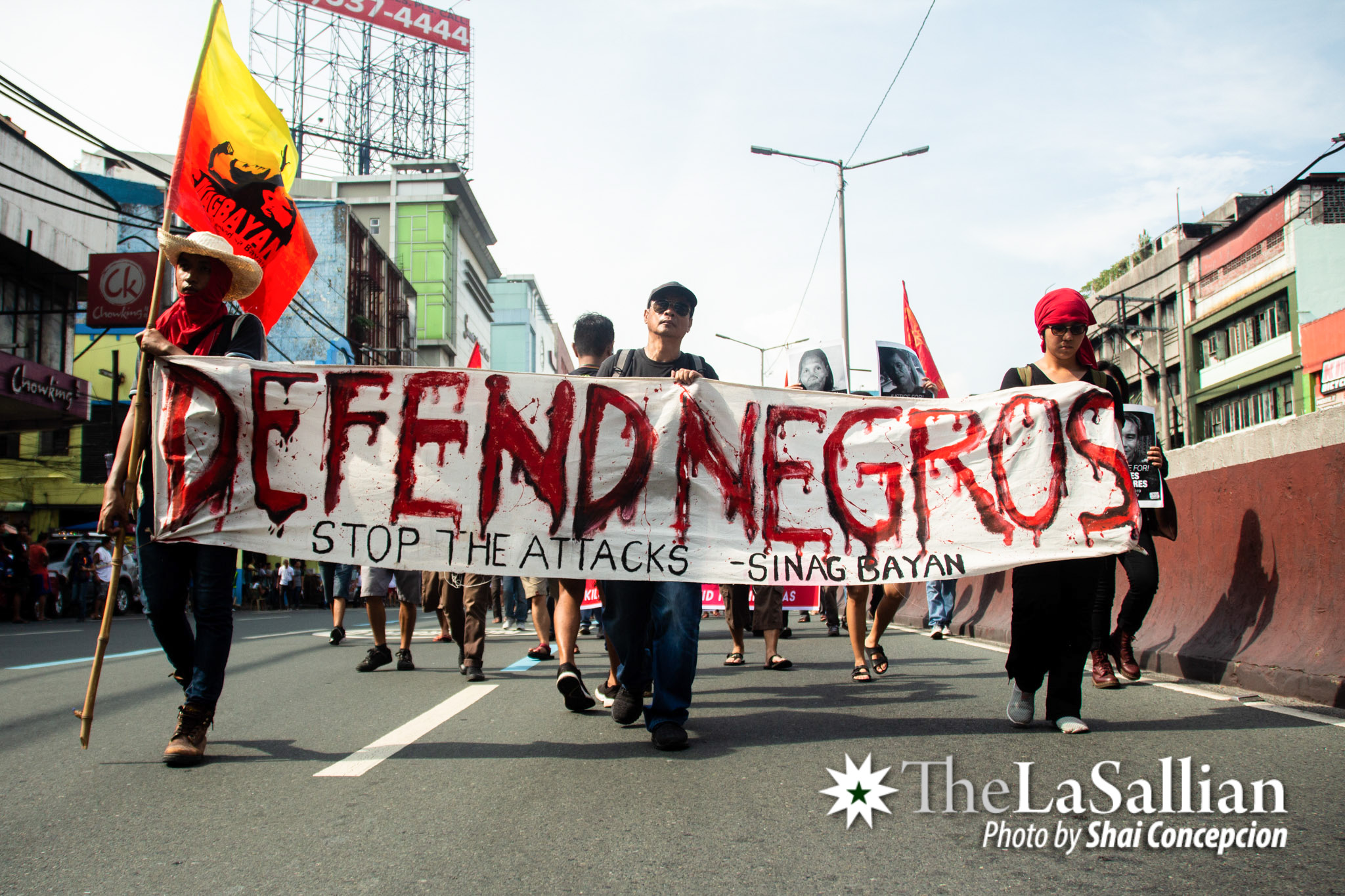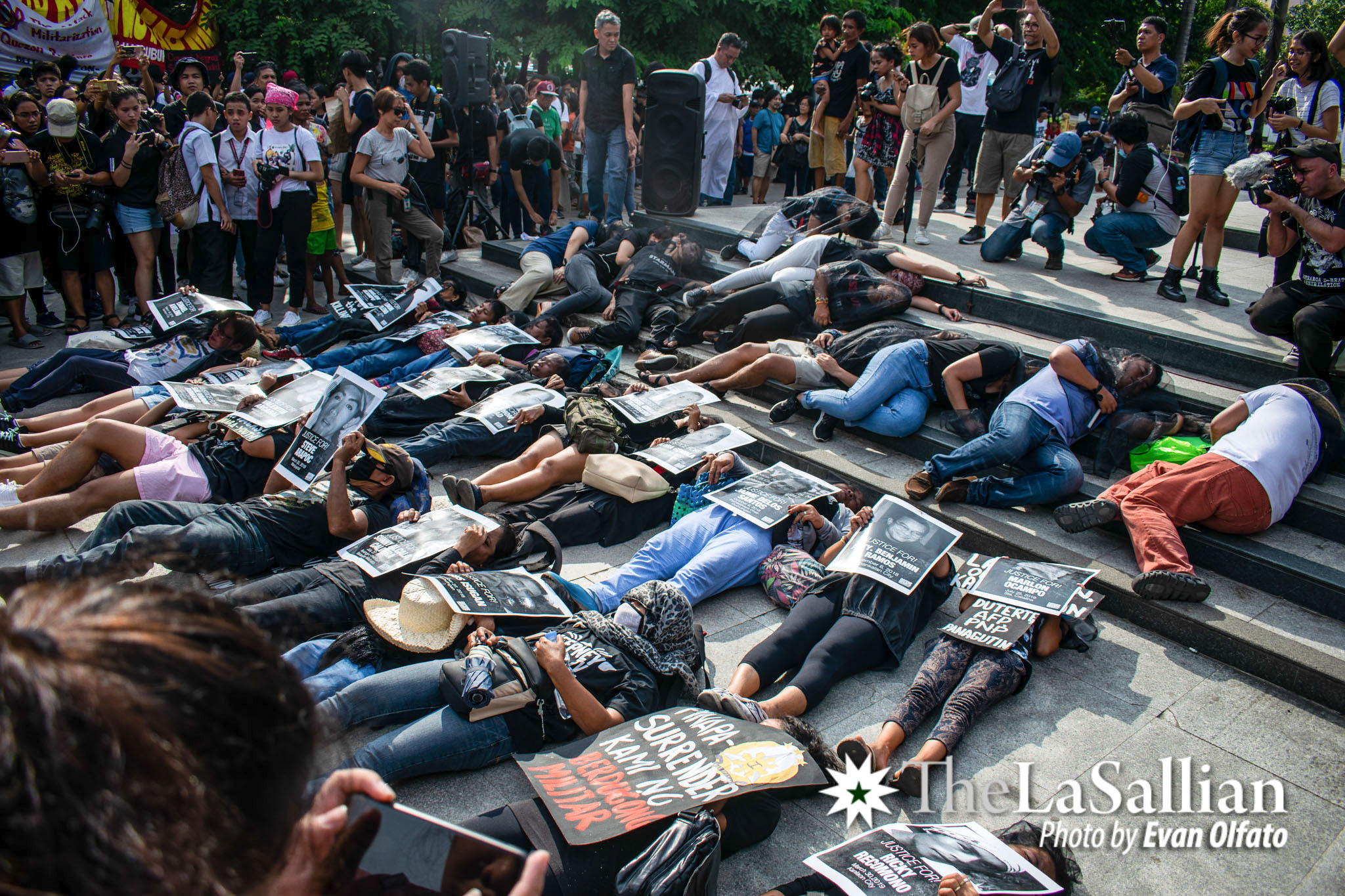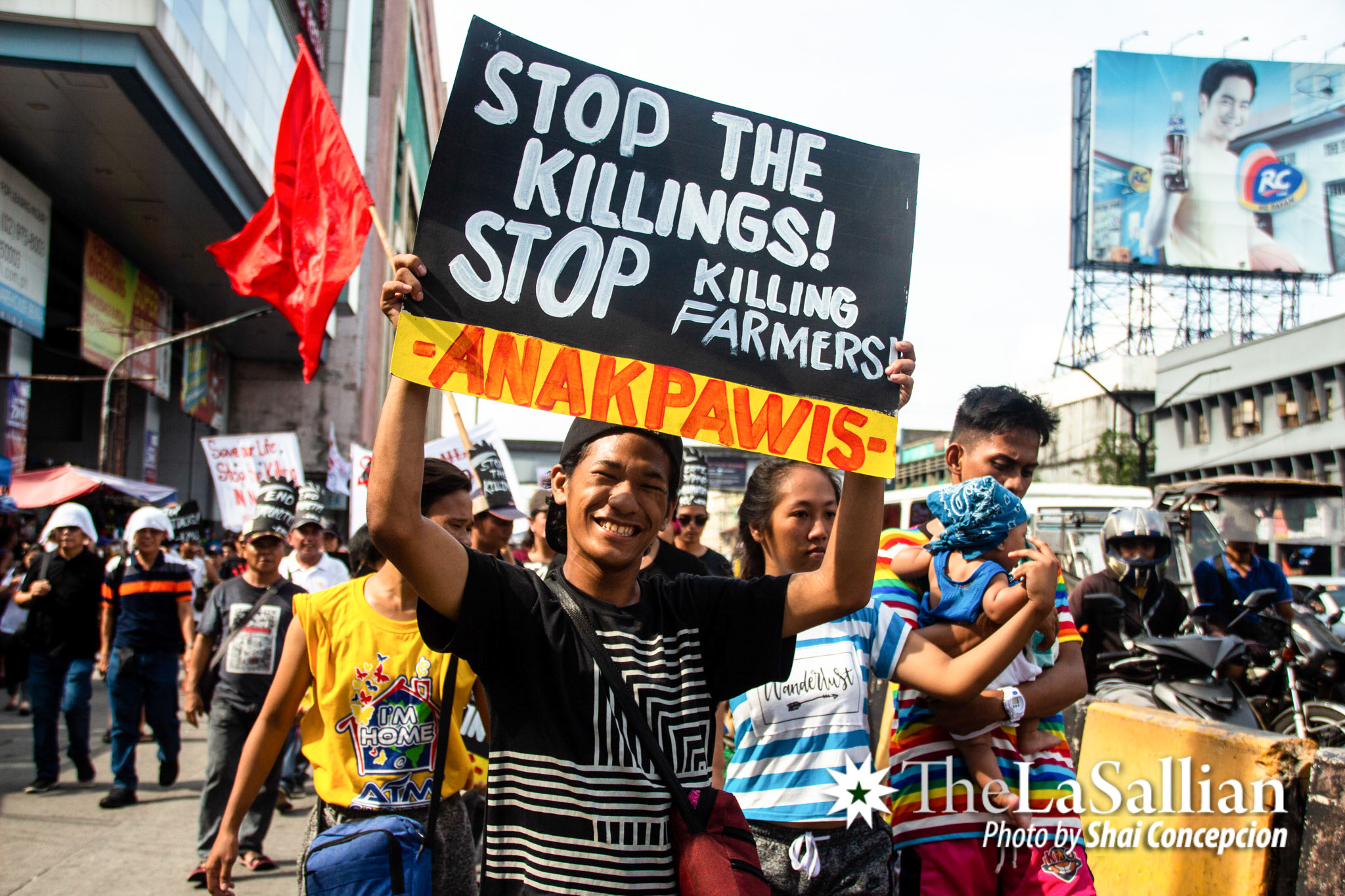Last August 20, various activist and progressive groups held protests, which they collectively dubbed the National Day of Mourning. Farmers, religious groups, and youth groups mobilized in Mendiola before converging with students from state universities who walked out of their classes, then marched towards the Liwasang Bonifacio near the Manila Post Office.

Violence against farmers
One of the primary reasons behind the mobilization was the recent spate of killings that rocked Negros Island. The island has a history of violence that goes as far back as the Marcos Era. The Escalante massacre, which saw 20 civilians killed in a protest commemorating the 13th anniversary of the declaration of Martial Law, is one of the island’s most infamous incidents.
However, over the past year, the killings have once again become commonplace, with at least 87 people estimated to have perished since 2017. Most of these victims were farmers, activists, and even lawyers.
Protesters decried President Rodrigo Duterte’s Memorandum Order No. 32, which declared a state of lawlessness in the regions of Samar, Bicol, and Negros Island. The order also called for additional military and police presence in those areas, while ensuring that “no civil or political rights will be suspended during the existence of a state of national emergency on account of lawlessness.”
However, Iana De Castro (VI, BSINSYS), Vice Chairperson of Anakbayan Vito Cruz, disagreed with this order, arguing that after the declaration of the memorandum, the killings in Negros Island have only intensified and the perpetrators are yet to be identified.
“Instead of doing what it claims to [do], mas lalo napunta sa vulnerable ang lagay ng mga mamamayan na unarmed and innocent,” she explained.
(Instead of doing what it claims to do, unarmed and innocent civilians were placed in more vulnerable circumstances.)
Rep. Sarah Elago from Kabataan Partylist noted that her party-list vows to have Congress investigate these killings.
“We filed a resolution calling upon the House of Representatives to conduct an independent probe on the spate of killings and human rights violations, and also to address the systemic and structurally ingrained problems faced by the peasant and workers sector in Negros island,” she elaborated.

Moral obligations
A number of clergy were present during the demonstration. Religious leaders came under attack recently after the administration filed sedition charges on a number of bishops, such as Lingayen-Dagupan Archbishop Socrates Villegas and Caloocan Bishop Pablo Virgilio David. Priests have also been under threat in 2018, when three priests were reportedly killed.
Fr. Oliver Castor—who is a former professor of the University’s Theology and Religious Education Department—explained that his organization, Rural Missionaries of the Philippines, often finds itself at odds with the administration due to their mission to help the poor, such as farmers and fishermen.
He stated that clergy were getting red-tagged due to their criticism of the government, and since the communist movement in the country is associated with terrorism, the clergy find themselves being branded terrorists and vulnerable to attacks from the government.
“We believe that all the attacks, whether they are extrajudicial killings or filing of trumped up charges [that] imprison church people who promote people’s rights, are all state-sponsored,” he claimed.
Sr. Mary John Manazan, Vice President for External Affairs of St. Scholastica’s College, slammed the label of “activist clergy”, emphasizing the obligation of the church, clergy, and lay person alike to call out wrongs in society.
“It is the moral obligation, not only the right, but the obligation of the church to show the immoral acts of anybody, especially the government,” she emphasized.
Arvin Isidro, a student from De La Salle-College of Saint Benilde, expanded on this by saying that it is the responsibility of Lasallians to fight for issues that may affect all students.
“We are Lasallian achievers for God and country, and bilang mga Lasallians, we want a safe space for us students,” he explained.

Tool for state repression?
Much of the concerns of the students present centered around the perceived attempts of the government to control campuses under the guise of protecting students from recruitment by leftist groups.
Senator Ronald dela Rosa recently denounced the presence of leftist groups on campuses, citing them as New People’s Army recruiters. He suggested measures, such as allowing the presence of police on campuses, in order to deter these groups from operating in schools.
Elago explained that there are numerous laws and international agreements, such as the United Nations Convention on the Rights of the Child, that establish school campuses as “peace zones”, preventing police and military elements from entering. As such, students from state universities decried the growing police presence on their campuses, as well as the mandatory drug testing imposed by the administration.
Many people online have called out Polytechnic University of the Philippines (PUP) students for protesting the mandatory drug testing, claiming that they would have nothing to fear if they were not drug addicts. PUP student and Anakbayan activist Ludwig Bables said that these mandatory drug tests can be used as a tool of tokhang, widening the potential for abuse by the police exponentially.
“Ibig sabihin [ng drug testing], yung drug war ni Duterte na pinapatay na mamamayan, ay papasok sa mga pamantasan sa mukha ng mandatory drug testing,” Bables elaborated.
(What that means is that the drug war of Duterte, where many have been killed already, is going to be implemented in our universities through the guise of mandatory drug testing.)
On the other hand, De Castro called the government policy of drug testing “Tokhang sa Pamantasan”, and believed that it is implied to be a tool of state repression.
“With mandatory drug testing, you can be tried on the spot [for drugs], papadulas ang entry ng pulis sa schools.” (It will be much easier for policemen to enter schools)
At the end of the program, bells were rung in commemoration of the victims, the women in black veils bowed their heads again along with the clergy and the students. In solemn silence they hoped to correct the injustices of the administration, and bring justice to the victims.
